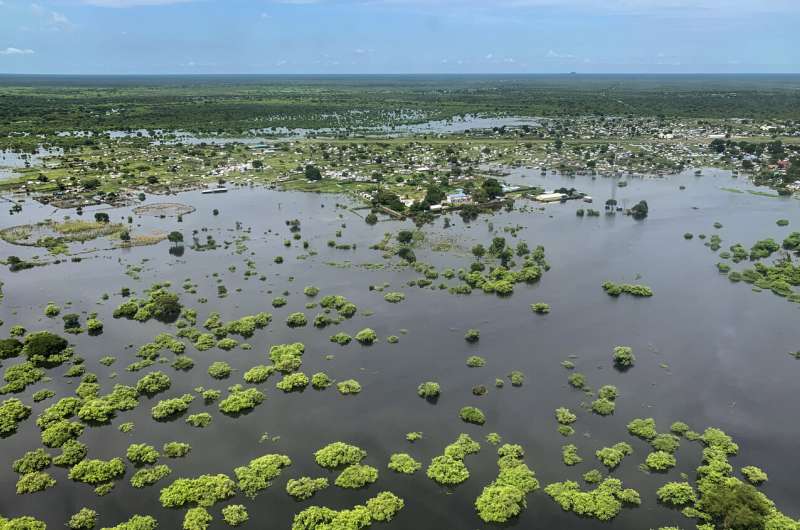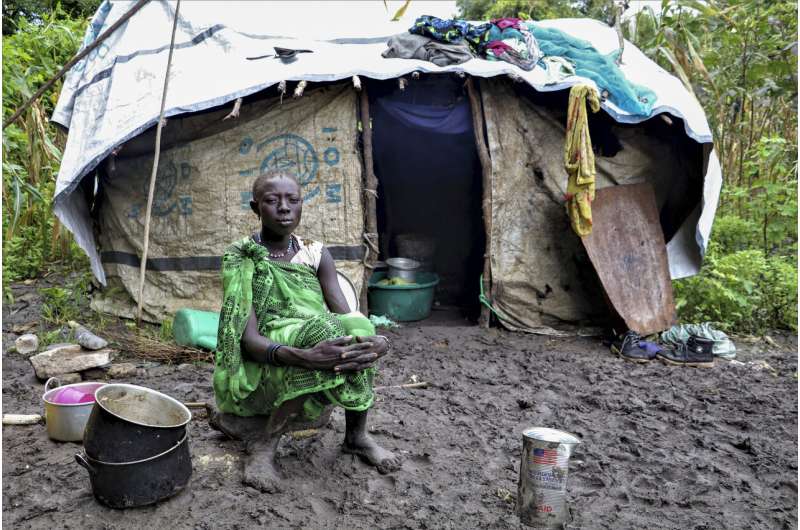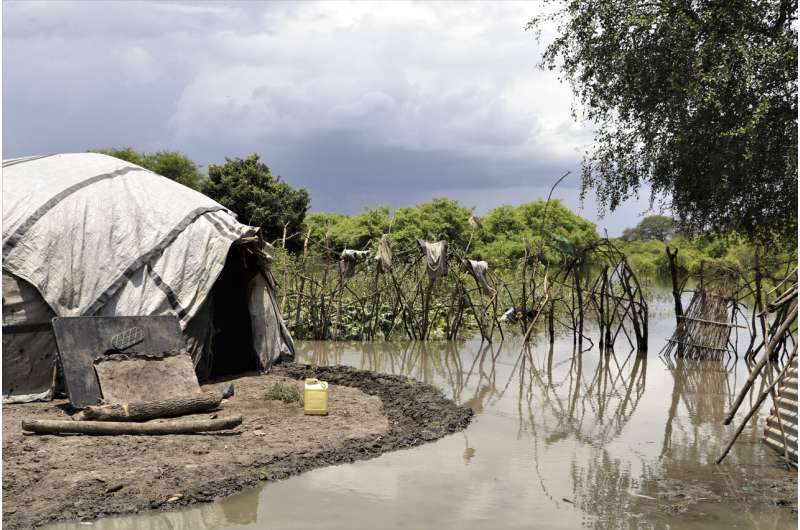Flooding is seen from the air in the Greater Pibor Administrative Area in South Sudan, Friday, Sept. 4, 2020. Flooding has affected well over a million people across East Africa, another calamity threatening food security on top of a historic locust outbreak and the coronavirus pandemic. (Tetiana Gaviuk/Medecins Sans Frontieres via AP)
Flooding has affected well over a million people across East Africa, another calamity threatening food security on top of a historic locust outbreak and the coronavirus pandemic.
The Nile River has hit its highest levels in a half-century under heavy seasonal rainfall, and large parts of Sudan, Ethiopia and South Sudan have been swamped amid worries about climate change.
As warnings of a new famine grow in South Sudan, the United Nations says flooding there has affected at least a half-million people, many in areas of Jonglei state that saw eruptions of deadly intercommunal violence this year.
People who fled the fighting now cling to precarious positions, some piling mud barriers around their homes. "They are exposed to malaria, waterborne diseases and snakebites as floodwaters overwhelm their homes and farms," the medical charity Doctors Without Borders says.
"People are really very frustrated," local activist David Garang Goch told the U.N. peacekeeping mission in Bor, the capital of Jonglei state, as even the ancient royal city of the Kushite kings known as the Island of Meroe, a UNESCO World Heritage site near the capital, Khartoum.
In Ethiopia, officials this week said more than 200,000 people have been displaced, with five of the country's nine regions affected and evacuations underway.
-
A young woman sits in front of her shelter after heavy rainfall and flooding destroyed her crops, in Lukurunyang in the Greater Pibor Administrative Area, South Sudan, Monday, Sept. 7, 2020. Flooding has affected well over a million people across East Africa, another calamity threatening food security on top of a historic locust outbreak and the coronavirus pandemic. (Tetiana Gaviuk/Medecins Sans Frontieres via AP)
-
Flooding surrounds a house in Lenyari in the Greater Pibor Administrative Area, South Sudan Thursday, Sept. 10, 2020. Flooding has affected well over a million people across East Africa, another calamity threatening food security on top of a historic locust outbreak and the coronavirus pandemic. (Tetiana Gaviuk/Medecins Sans Frontieres via AP)
The flooding is the latest challenge as food prices climb because of travel and other restrictions related to the COVID-19 pandemic, and after some crops and pasture were lost to earlier locust swarms that numbered in the millions or billions of insects.
Separately, heavy rainfall this month in a long stretch of the Sahel, the arid strip of land south of the Sahara Desert, also has caused flooding in parts of Niger, Mali, Burkina Faso, Mauritania and Senegal.
© 2020 The Associated Press. All rights reserved. This material may not be published, broadcast, rewritten or redistributed without permission.


























